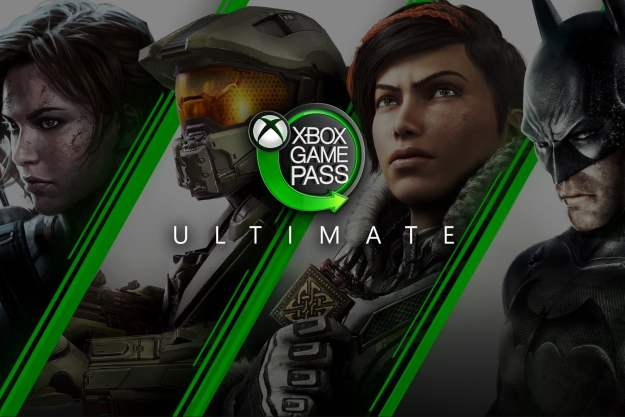Shigeru Miyamoto innocently began his career in interactive entertainment in 1977, when Nintendo — then a playing card maker turned toy manufacturer first breaking into arcades — hired the Kyoto-born dreamer as a staff artist.
But over the following three decades, he’s since become (in no particular order) a multimedia superstar, legendary designer and, of course, the closest thing the global console gaming biz has to a household name.
Even if you haven’t heard of the man himself, you’re surely familiar with his work, nowadays permanently imprinted onto the fabric of pop culture, as well countless million American psyches. Think 1981’s Donkey Kong, the king of coin-operated amusements; 1985’s Super Mario Bros., which all but invented the side-scrolling platform adventure; and, naturally, 1987’s The Legend of Zelda, the precursor to modern role-playing games.
No sense being shy with the credit either: A string of later successes such as Super Mario 64, Star Fox and Pikmin didn’t just further establish the development guru’s reputation as a visionary hitmaker. They also cemented Miyamoto’s status as an industry pioneer, secured his relevance for years to come and confirmed, beyond a shadow of the doubt, the man’s genius-level aptitude.
Still going strong after all these years, the tireless executive currently serves as Nintendo of Japan’s senior management director and general manager of its entertainment analysis and development division. Or, in English, is the top dog responsible for overseeing all creative endeavors at the Japanese giant. It’s no small task these days to boot, given the impending holiday launch of the company’s motion-sensitive Wii console (formerly codenamed Revolution), the recently debuted DS Lite and a spate of upcoming titles in production for multiple platforms.
Nevertheless, if anyone’s up to the task of reintroducing gaming’s most storied brand to increasingly jaded audiences and newcomers alike while simultaneously taking on corporate heavyweights Microsoft and Sony (let alone beating them at their own game) it’s the selfsame guy who made joystick waggling cool in the first place. We caught up with Miyamoto recently to discuss his thoughts on the impending console wars, where the marketplace is headed and why, when it comes to pumping out pixel-perfect blockbusters, he’s still top gun:
Chris Zimmerman: First off, we’d like to say it’s a real honor meeting you. You must get this kind of reaction all the time, though. When you initially started out in the videogame world, did you ever think you’d come so far?
Shigeru Miyamoto: No, I never expected it. In a way, it’s extremely flattering. In another way, it’s also kind of embarrassing for me. A lot of designers like all the attention they get from fans and the media. For me, even just doing interviews is still very unnerving. I don’t like all the attention. I think it’s better to let my work do the talking.
Chris Zimmerman: Well said. As someone with a little insight, let’s discuss an important topic: The troubles being faced these days by the videogame business. Publishers are folding, sales are tanking, and the industry is in a terrible transition year. To what do you attribute these issues?
Shigeru Miyamoto: The problem is that people forget that to move forward, you have to change and innovate. No one is trying to grow the overall audience of people playing games? that essential base of fans who are the heart and soul of the industry. Targeting the same people over and over won’t get you anywhere. You have to expand your horizons.
At Nintendo, we try to embrace all interest groups. People don’t have to be of a certain age or inclination to appreciate our work. Everyone else is trying to attract the same user base. We’re trying to expand it and bring gaming to the mass-market ? people of all personalities and genders. The only way to improve our industry is to look at it from a broad viewpoint and see what we can do to change the [entire framework it’s founded upon].
Chris Zimmerman: We know it’s your contention that Wii will help do this. Before we get into specifics though, how do you feel about the way people have responded to the name, which is unconventional for a videogame console, to say the least?
Shigeru Miyamoto: I’m pleased with it. [Laughs] Here in America, it may cause some to smile. But we were determined to come up with a name that was different than anything you’ve heard from a console before, and that would be appropriate for worldwide use. People who don’t like videogames don’t care about something that sounds like a videogame system. It’s an immediate turn-off. So we decided to break with tradition. We came up with something everyone would remember, that would also spark their interest. This is a system for everyone, not just gamers.
Chris Zimmerman: Some are skeptical about that last statement, given the system’s approach ? for instance, its emphasis on backwards compatibility, geek-friendly games like Project H.A.M.M.E.R. and support for downloadable NES/Genesis classics. Why shouldn’t they be worried?
Shigeru Miyamoto: Wii redefines what audiences have come to expect from games. It offers players a new interface, gives designers a new medium through which to make their ideas reality and challenges the very concept of traditional game design. It’s inspirational. It is also easy to pick up and play, so anyone can enjoy the experience. You don’t have to be a gamer to appreciate Wii. I believe it will help carve out a new audience for videogames, just as the Nintendo DS has on other fronts.
Chris Zimmerman: To what do you attribute the enduring popularity of characters like Mario (New Super Mario Bros. rocks!) and [The Legend of Zelda: Twilight Princess’] Link, and what role will they play in helping to launch and sell the unit?
Shigeru Miyamoto: These characters enjoy lasting appeal because we take the time to go back and reinvent them every so often. We’re very careful to make sure they remain fresh by only bringing them back when there’s a need. We also take the time to do so only after enough new technological innovations exist to make each new appearance feel natural and welcome. Every game they appear in is different. We’re not in the business of simple sequels. Because of this, we offer original experiences in familiar universes. Gamers appreciate this, and I’m confident that with Wii, as on [our other systems] they’ll want to revisit with these characters again.
Chris Zimmerman: It’s been reported that you’re a big fan of American designers like The Sims’ Will Wright. Nonetheless, how come in truth, so few are able to match your ability to continuously pump out hit after hit?
Shigeru Miyamoto: People like to play to existing user bases. Many developers make the same kind of games over and over again. It works to a point. But you have to take chances, and think beyond what’s happening on the screen itself. It’s not only important that players be given something that will engage their imagination and keep them playing for a long time. You also have to consider what people watching someone play your game will think. Making sure that the game’s interesting to both play and observe is important. If people seem to be having a good time playing your game, they’ll become curious, and that means more people will eventually play it.
Chris Zimmerman: Hype is already building surrounding the next-generation console war. How do you see the battle shaking out between Nintendo, Sony and Microsoft?
Shigeru Miyamoto: What battle? What war? I think the press has made upcoming changes in the industry out to be something more than they really are. I don’t even like using the term “next-generation.” I prefer to say that it?s a new generation of console that Nintendo is working on with the Wii. We don?t see things the same way as everyone else.
Chris Zimmerman: But of course. Between games like Chibi-Robo and Nintendogs, you don’t have to convince us of that. Still, you have to admit things are going to get pretty ugly out there in the marketplace soon?
Shigeru Miyamoto: Maybe so. But we’re giving people something they can’t get anywhere else ? a change in thinking and major cultural shift. We’re trying to take the next big step for gaming, and bring it to a whole new level. Nintendo won’t simply be taking the same type of games you’re already familiar with and giving them a new coat of paint and feature upgrade. We’re looking to push boundaries and attract new admirers. Women, girls? They’re only the beginning. Unlike competitors, Wii’s audience is much bigger than the one for a typical gaming system.
Chris Zimmerman: Point taken. Having played with the Wii, it definitely seems more intuitive than one might suspect at first brush. We can see how some folks might be smitten, or, if nothing else, mildly intrigued?
Shigeru Miyamoto: Thank you. We’re doing everything we can to make it appealing, even to the non-gamer. Playing with the [wireless, TV remote-style Bluetooth] controller will be very simple and subconscious. You won’t have to worry about your arms tiring or working up a sweat ? everything’s timing based. The system should feel comfortable in anybody’s hands.
Chris Zimmerman: Any famous last words you’d care to get across for readers who are waiting for Nintendo to either rise from the ashes and rule again, or (as some would allege with GameCube and concepts like connectivity) fall flat on its face?
Shigeru Miyamoto: Nintendo has always done things differently [than its peers.] This is just as important to note as the quality of games we make. Change is good. We’re always looking at what comes next. You can’t keep doing the same old things. People expect and demand more. We plan on giving it to them.
Editors' Recommendations
- These are the 10 best gaming PCs I’d recommend to anyone
- 3 great Xbox Game Pass titles you should try this weekend (April 26-28)
- Best PS5 deals: Console bundles, top games, and accessories
- Best gaming chair deals: Save on Corsair, Razer, and more
- What’s free on the Epic Games Store right now?




